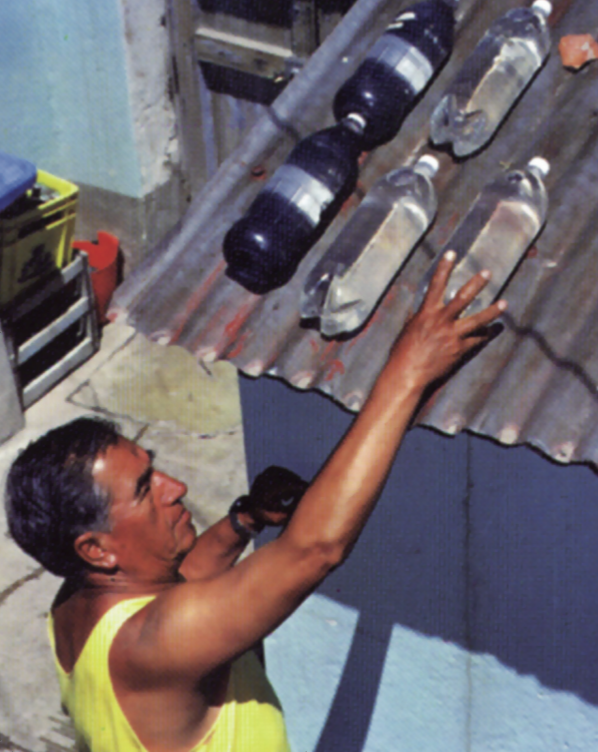Difference between revisions of "UV treatment / Solar disinfection (SODIS)"
From Akvopedia
(→External links: bulleted lists for links) |
(Changed image link) |
||
| Line 5: | Line 5: | ||
This technology was awarded a price by Simavi and organisations such as SANDEC are promoting it in many developing countries. | This technology was awarded a price by Simavi and organisations such as SANDEC are promoting it in many developing countries. | ||
| − | [[Image: | + | [[Image:Sodis.PNG|thumb|right|150px|Plastic bottles filled with contaminated water are placed in the sunlight ]] |
{| border="1" cellpadding="5" cellspacing="0" align="center" | {| border="1" cellpadding="5" cellspacing="0" align="center" | ||
Revision as of 19:25, 25 June 2008
SODIS uses sunlight to inactivate harmful micro organisms in water almost completely. Transparent plastic (PET) or glass bottles filled with contaminated, but clear, water are exposed to the sun for six hours in sunny weather or two days in cloudy weather. If a temperature of 50 degrees Celsius is reached, an exposure time of one hour is sufficient.
This technology was awarded a price by Simavi and organisations such as SANDEC are promoting it in many developing countries.
| Advantages | Disadvantages |
|---|---|
| Very cheap. |
|
Costs
Very low, re-use of plastic bottles.
Applying conditions
Numbers: Used by more than 1,000,000 in Asia, Africa and Latin America.
Movie
- Philippines www.youtube.com/watch?v=FnjO-y8-Crw
- Sierra Leone Sodis workshop www.youtube.com/watch?v=nJiV0qKm1T8&feature=related

